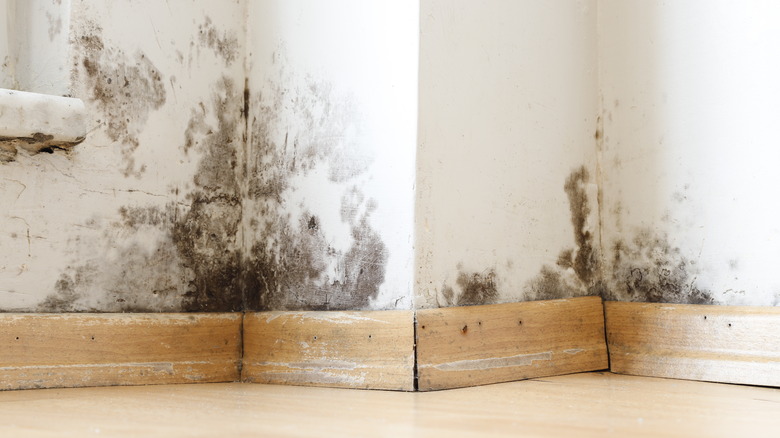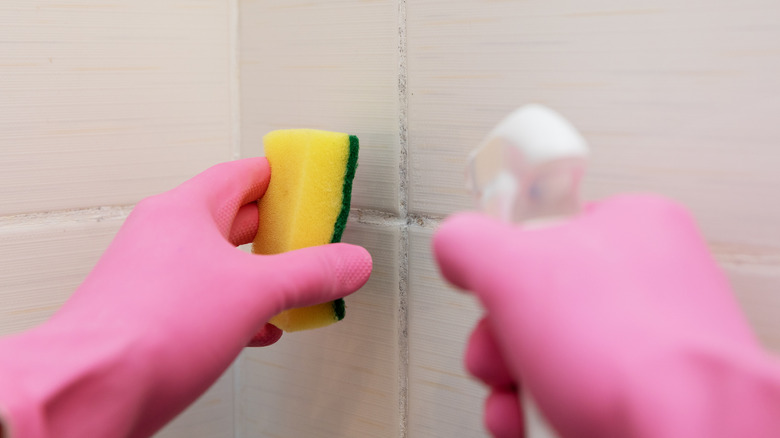How To Get Rid Of Mold Around The House Naturally With Essential Oils
Mold can often be a pesky household problem, creeping into moist and damp places like showers, kitchen sinks, and laundry rooms. You may also identify mold in your home anywhere where moisture is combined with darkness like basements, cellars, and garages. While there are numerous cleaning and antifungal prevention agents on the market, many are laden with chemicals that can be harsh on surfaces and could pollute the air we breathe. One great solution to cleaning and preventing mold may already be in your home — essential oils.
While typically used for making your home smell good through diffusers, candles, and other applications, many essential oils also boast of antifungal and antibacterial properties that make them a great addition to your cleaning arsenal in the fight against mold. Not only can they thoroughly clean fungus hotspots, but they can also often prevent growth in the first place. As an added benefit, they'll keep your home smelling fresh and clean where it needs it most.
Using essential oils to fight mold
Many types work particularly well for fungi prevention and removal, including aromatic oils such as cinnamon, peppermint, and eucalyptus. Clove oil, with its aromatic and spicy scent, is the best essential oil for combating black mold in particular, which can create many health problems if not dealt with. Lemon essential oil, often a favorite for household cleaning for its grease-dissolving properties and fresh scent, is also a great way to both prevent mold and remove odors associated with it. Most of these oils help break down the walls of mold spores, preventing their growth.
To use essential oils to fight mold, mix a solution of distilled water and a few drops of essential oil to spray down your shower and sink area after use. You can also create a water, vinegar, and oil solution to clean these and other areas already suffering from mold. Another option is to apply essential oil with a dropper or cloth directly to your surfaces, like the area around bathroom fixtures and tile grout, as a deterrent to spore production.

